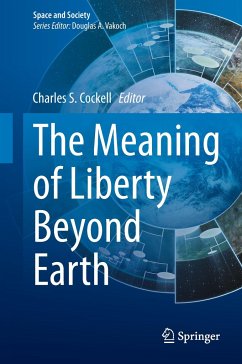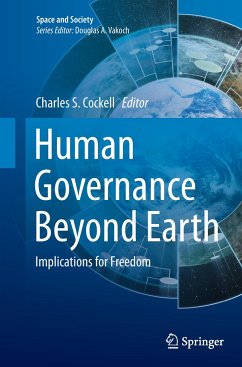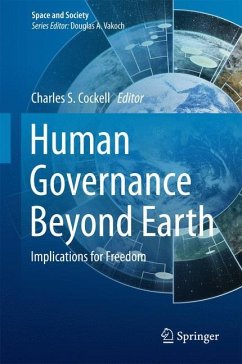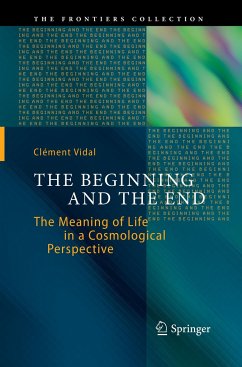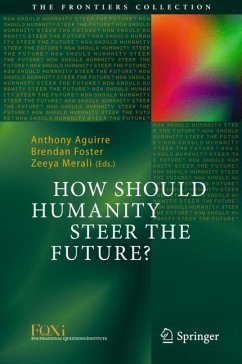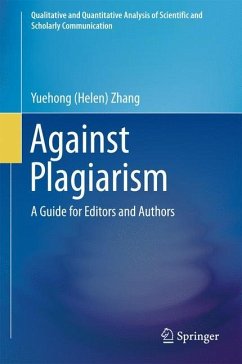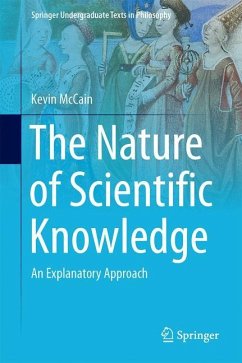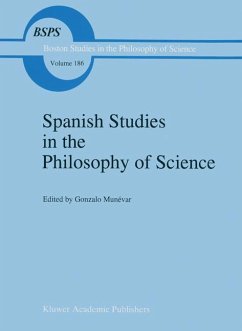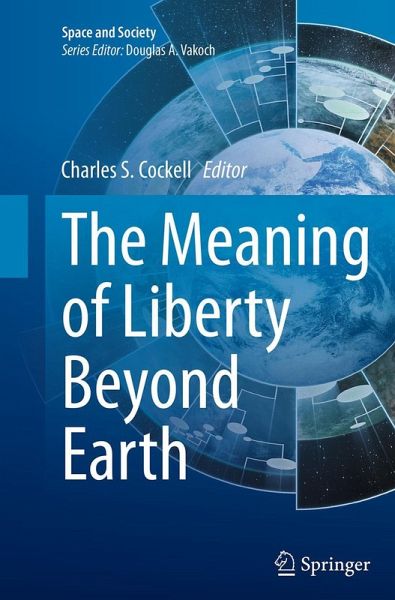
The Meaning of Liberty Beyond Earth
Versandkostenfrei!
Versandfertig in 6-10 Tagen
113,99 €
inkl. MwSt.

PAYBACK Punkte
57 °P sammeln!
The purpose of this book is to initiate a new discussion on liberty focusing on the infinite realms of space. The discussion of the nature of liberty and what it means for a human to be free has occupied the minds of thinkers since the Enlightenment. However, without exception, every one of these discussions has focused on the character of liberty on the Earth. The emergence of human space exploration programs in the last 40-50 years raise a fundamental and new question: what will be the future of liberty in space? This book takes the discussion of liberty into the extraterrestrial environment...
The purpose of this book is to initiate a new discussion on liberty focusing on the infinite realms of space. The discussion of the nature of liberty and what it means for a human to be free has occupied the minds of thinkers since the Enlightenment. However, without exception, every one of these discussions has focused on the character of liberty on the Earth. The emergence of human space exploration programs in the last 40-50 years raise a fundamental and new question: what will be the future of liberty in space? This book takes the discussion of liberty into the extraterrestrial environment. In this book, new questions will be addressed such as: Can a person be free when the oxygen the individual breathes is the result of a manufacturing process controlled by someone else? Will the interdependence required to survive in the extremities of the extraterrestrial environment destroy individualism? What are the obligations of the individual to the extraterrestrial state? How can wetalk of extraterrestrial liberty when everyone is dependent on survival systems?



